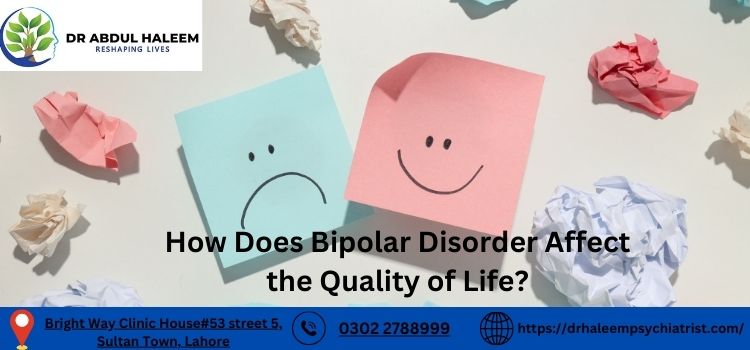Post-Traumatic Stress Disorder (PTSD) is a mental health disorder that affects millions of people around the world. It can develop after experiencing or witnessing a traumatic event such as war, natural disasters, physical or sexual abuse, and serious accidents. People with PTSD often struggle with symptoms such as flashbacks, nightmares, severe anxiety, and uncontrollable thoughts related to the traumatic event. These symptoms can significantly impact a person’s daily life and ability to function normally.
In this article , we will explore whether PTSD affects judgement and decision-making abilities.
Let’s dive in to get more details.
Does PTSD affect Judgement ?

While PTSD is primarily associated with emotional disturbances, it can also have a profound impact on cognitive functions such as judgement and decision-making. Studies have shown that people with PTSD may experience difficulties in making decisions and processing information effectively.
One reason for this could be the impairment of the prefrontal cortex, which is responsible for executive functions such as problem-solving, planning, and decision-making. In individuals with PTSD, the prefrontal cortex may become overactive or underactive, leading to difficulties in regulating emotions and making rational decisions.
Impact of PTSD on Judgement
PTSD can affect judgement in various ways. Some individuals with PTSD may have heightened emotional responses, leading to impulsive and irrational decision-making. They may also struggle with critical thinking and analyzing information objectively.
Moreover, people with PTSD may have difficulty trusting their own judgement and may second-guess themselves constantly. This lack of confidence in one’s judgement can be detrimental and affect a person’s ability to make sound decisions.
Factors Contributing to Impaired Judgement in PTSD
Several factors may contribute to impaired judgement in individuals with PTSD. These include:
Hypervigilance:
People with PTSD may constantly feel on edge, making it challenging to focus and concentrate on important tasks. This heightened state of arousal can also lead to impulsive decision-making.
Flashbacks and intrusive memories:
Those with PTSD may experience flashbacks or intrusive memories related to the traumatic event, which can be overwhelming and disrupt their ability to think clearly.
Avoidance behaviors:
Individuals with PTSD may engage in avoidance behaviors to cope with distressing thoughts and emotions. However, this can also lead to avoiding important decision-making tasks, leading to impaired judgement.
Co-occurring disorders:
PTSD often coexists with other mental health disorders such as depression and anxiety, which can further impact a person’s ability to make sound judgements.
Seeking Help for Impaired Judgement in PTSD
If you or someone you know is struggling with impaired judgement due to PTSD, it is essential to seek help from a mental health professional. Treatment options for PTSD may include therapy, medication, and self-care strategies.
Therapy can help individuals with PTSD learn coping skills to manage their symptoms and improve decision-making abilities. Cognitive Behavioral Therapy (CBT) has been found to be particularly effective in treating PTSD. Medications such as antidepressants may also be prescribed to alleviate symptoms of PTSD and improve cognitive functions.
In addition, self-care practices such as regular exercise, healthy eating, and stress management techniques can also help improve judgement in individuals with PTSD.
The Role of Social Support in Improving Judgement in PTSD
Social support from family, friends, and loved ones can play a crucial role in helping individuals with PTSD improve their judgement. Having a strong support system can provide a sense of safety and stability, which is essential for managing symptoms of PTSD.
Moreover, social support can also help individuals with PTSD learn healthy coping mechanisms and make better decisions by providing different perspectives and guidance.
Coping with Impaired Judgement in Everyday Life
Living with impaired judgement due to PTSD can be challenging, but there are strategies individuals can use to cope and make better decisions in their daily lives. Some tips for coping with impaired judgement include:
- Writing down important decisions and seeking advice from a trusted person before making them.
- Taking breaks when feeling overwhelmed or emotionally dysregulated.
- Practicing mindfulness techniques to stay present and manage intense emotions.
- Developing a self-care routine to maintain physical and mental well-being.
- Engaging in therapy or support groups to learn coping skills and receive guidance from others who understand the struggles of PTSD.
By implementing these strategies, individuals with PTSD can learn to navigate their impaired judgement and make better decisions that align with their goals and values.
The Importance of Self-Awareness in Managing Impaired Judgement
Individuals with PTSD can also benefit from developing self-awareness about their condition and its impact on judgement. By recognizing triggers and learning to manage symptoms, individuals with PTSD can improve their decision-making abilities.
Therapy can also help individuals develop self-awareness and learn to regulate their emotions, leading to better judgement.
The Role of Education and Awareness in Overcoming Impaired Judgement
Education and awareness about PTSD can also play a significant role in reducing stigma and improving support for individuals struggling with impaired judgement. By understanding the impact of PTSD on decision-making abilities, society can provide more empathy and understanding towards those affected.
Moreover, increased awareness can also encourage individuals with PTSD to seek help and improve their judgement through proper treatment and support.
Conclusion
PTSD can indeed affect judgement and decision-making abilities in individuals. However, with proper treatment, support, and self-care strategies, it is possible to manage these impairments and improve judgement. Seeking help from a mental health professional and developing self-awareness are crucial steps towards overcoming impaired judgement in PTSD.
So, it is essential to promote education and awareness about PTSD to reduce stigma and provide support for those affected. With proper treatment and support, individuals with PTSD can manage their symptoms and make sound decisions in their daily lives.
FAQs
Frequently asked question by people.
Can PTSD cause poor Judgement?
Yes, PTSD can cause impaired judgement due to factors such as hypervigilance, flashbacks and intrusive memories, avoidance behaviors, and co-occurring disorders.
What are the 17 symptoms of complex PTSD?
The 17 symptoms of complex PTSD include difficulties with emotion regulation, negative self-perception, difficulty maintaining relationships, and changes in beliefs about oneself and others.
Does trauma cloud your Judgement?
Yes, trauma can cloud judgement through symptoms such as flashbacks and intrusive memories, avoidance behaviors, and co-occurring mental health disorders.


